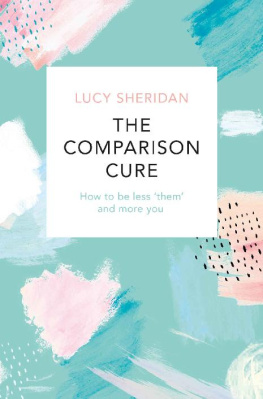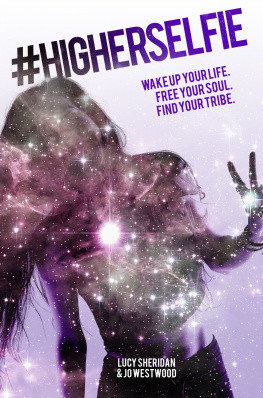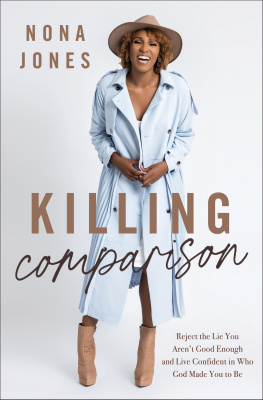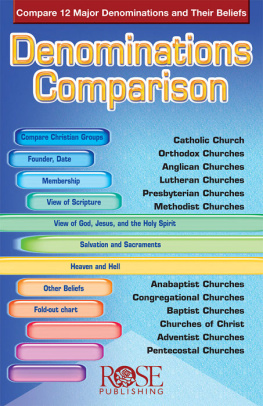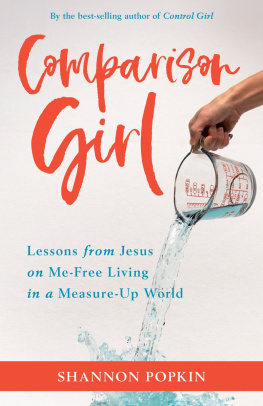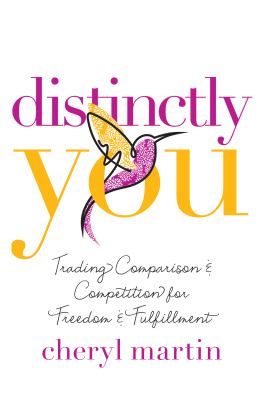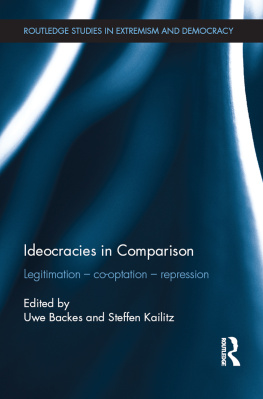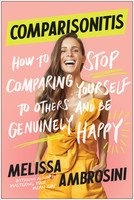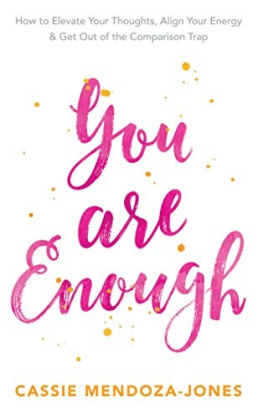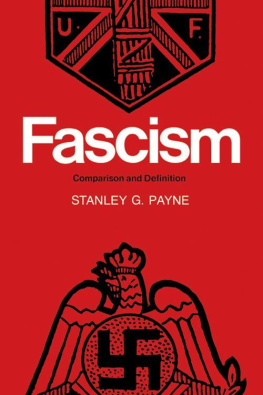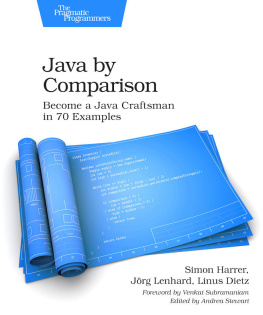CONTENTS
The contents of these pages apply to you if you have ever looked at someone else, and how they are living their life, and felt a pang of inferiority or doubt that you are enough just as you are. It might be that youve become dependent on social media, and this is causing you to reflect on how you are showing up in your life, or perhaps you do not give a flying duck about the internet but a long-standing rivalry has jeopardised your happiness comparison does not care as long as it has you trapped.
Thats where this book comes in. The Comparison Cure is truth serum for your individuality, helping you to make the choices you want. It marks a new era for you, where you will call back your power, end distraction and define and align with the life you want to lead, from today.
As the worlds first and only comparison coach, I have made exploring and curing comparison my specialism. I have trialled, tested and, ultimately, perfected a collection of exercises, tools and programmes which have been proved to massively reduce comparison and, in this book, I am putting them in your hands, and encouraging you to heal your comparison wound as I have done.
For more than six years I have helped thousands of people dissolve their comparison complex and reclaim ownership of their thoughts and decisions. I have coached on Skype and in person and taught group workshops. My clients have included pop stars and pub owners, Harry Potter actors and hair stylists, school children and retirees.
It is my mission in life to help you get over ranking and obsession with others and instead be truly happy and empowered in your own life so the real you can take back control.
We are about to get started, and before we do, Id love to share a few pointers to help you move forward with grace and gusto.
Knowledge is power, but knowing how to use knowledge is wisdom.
Throughout the book you will be encouraged to journal your thoughts, goals and feelings, but you will also be delving deeper and learning how to follow through on these often the missing bit. So, as well as learning about the tricky trap of comparison, this book is packed full of pointers, examples and exercises designed to make you think, and to prompt you to act too.
Each chapter covers a specific step and deliberately builds on the one before it, so for best results, work your way through from start to finish. Make sure you invest the time to complete the exercises as you go, so you can start feeling the comparison trap dissolve straightaway as the real you takes back control. I also advise you to apply the action tips highlighted to your life as soon as you can, and make a note of those that resonate with you the most.
You will notice there is an ebb and flow in the chapters when it comes to exploring themes and concepts, and then the activities and action points that accompany them. With this in mind, treat your reading of this book a bit like interval training at the gym; go at your own pace and with the rhythm of the book. My intention was to be true to my client programme and its process, and this is mirrored in the level of activities included and the weighting of those. For example, , is pretty robust intense even as its aim is to truly get to the root of your own motivations and is a lynch pin of the comparison curing process. So, although I am not going to apologise for it, I would like to highlight this uneven weighting.
With this in mind, it will also help to approach the experience of curing your comparison like interval training that will see you work different muscles, look at different areas, incorporate different paces to get the result you seek. To continue the physical analogy if I may, this is opposed to approaching it as a gruelling, one-pace marathon.
Finally, I have designed The Comparison Cure to be a working tool box for you, so make it your own scribble in the margins, take pictures of paragraphs that speak to you, fold the corner of pages, highlight the chunks that resonate and repeat and revisit the bits that work for you, to keep your fire stoked. If you need an accountability buddy, I am here simply tag or add me on Instagram @lucysheridan and prepare to feel my hand on your shoulder!
Comparison is the Thief of Joy
Theodore Roosevelt
What is comparison?
According to the dictionary, comparison is a consideration or estimate of the similarities or dissimilarities between two things or people. That sounds fairly innocuous, doesnt it?
Where we start running into trouble is when this practice of the above, and the meaning we attach to it, becomes a habit that adversely affects our life. On the lesser end of the scale, it might be a bit like biting your nails: its not ruining anything, but it doesnt do you any favours. So, this might translate to an occasional worry about your career and the odd bitchy leak when you hear about Becky from the office flying first-class.
On the higher, more acute end of the scale, a complex can embed itself. This manifests where, from our comparison judgements, we develop beliefs about ourselves and others that lead to mindsets and behaviours that then govern our lives. In life, it feels like being caught in a fog unable to get out, with your view overwhelmingly affected.
Whether you get the odd pang of jealousy every so often and it makes you feel slightly awkward, or you can identify that your comparison complex is hindering you in your life acutely and regularly, this book will help you.
Where has it come from?
The comparison epidemic we are in now is not a millennial problem but rather a problem spanning millennia. So dangerous was the thought perceived to be, of wanting what others have, that the subject of comparison made it into the Bible with its inclusion in the ten commandments under thou shalt not covet.
You shall not covet your neighbours house. You shall not covet your neighbours wife, or his male or female servant, his ox or donkey, or anything that belongs to your neighbour
Exodus 20:17
It is fair to say that not all the examples have translated with time Im okay for a donkey, to be honest and yet, from this we can judge that our habit of looking over the fences of our neighbours has been occurring since year dot.
Scottish philosopher David Hume was one of the earliest to tackle the topic of comparison and its effects in A Treatise of Human Nature (173840), his study of malice and envy. He wrote:
A man who compares himself to his inferior, receives a pleasure from the comparison. And when the inferiority decreases by the elevation of the inferior, what should have been a decrease of pleasure, becomes a real pain, by a new comparison with its preceding condition
Ultimately, Hume argued that what grinds our gears is comparing ourselves to the achievements of the people whom we label as our equals. Comparison is most, to use his words, painful when those we judge to be on the same level as us, perhaps due to social circles, age or background, are seen by us to be pulling away.
Comparison and social-status anxiety have been proved to be endemic in more recent centuries too. After all, Keeping up with the Joneses made its way into our collective parlance in the mid-1800s and subsequently evolved into a comic strip that was popular well into the 1950s. Through this idea of keeping up that has passed the test of time, we assess if we are getting along in life by maintaining a status, owning the same stuff and doing the same things as those hypothetical Joneses.

